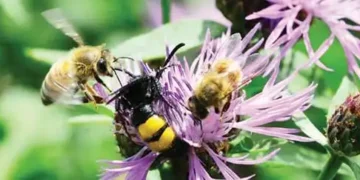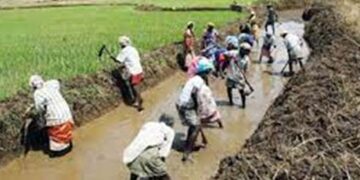Blitz Bureau
A NEW study has found that up to 90 per cent of natural pollination links between wild vanilla species and their insect partners could be lost by 2050 due to climate change. This could destabilise vanilla production and erase valuable genetic traits critical for crop resilience.
The study published recently in Frontiers in Plant Science has warned that climate change could drive wild vanilla plants and their native pollinators apart, threatening this delicate ecological bond.
Vanilla, like cacao and coffee, is one of the world’s most prized crops. It supports rural economies, drives agricultural innovation, and is used widely in food, cosmetics, and traditional medicine. But its primary source Vanilla planifolia is increasingly vulnerable to heat, drought and disease, threats that are expected to intensify as the climate warms, reported Down to Earth.
Unlike the cultivated planifolia, wild vanilla species depend on specific insect pollinators, chiefly orchid bees for natural reproduction. These wild relatives also carry valuable genetic traits, such as drought resistance, heat tolerance and disease resilience, which could help safeguard the future of commercial vanilla. According to research, seven wild vanilla species could expand their range by as much as 140 per cent under future climate conditions. However, four species could suffer major losses, with their habitats shrinking by up to 53 per cent.
































